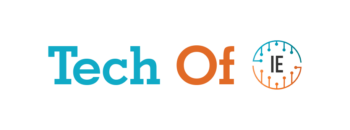Blockchain technology is transforming different industries, including supply chain management. The supply chain is a complex network of activities involving the delivery of products and services from suppliers to manufacturers, distributors, retailers, and ultimately to the end-users. The traditional supply chain management systems are prone to errors, delays, fraud, and lack of transparency, leading to increased costs and decreased efficiency. However, blockchain technology offers a solution to overcome these challenges and create a more transparent and efficient supply chain system.
How Blockchain Works in Supply Chain Management
Blockchain is a decentralized, immutable, and secure digital ledger that records transactions in a transparent and tamper-proof manner. In supply chain management, blockchain can be used to create a shared and trusted network among all parties involved, including suppliers, manufacturers, distributors, retailers, and consumers. Each transaction is recorded in a block, and once verified by all parties, it is added to the chain, creating a permanent and unalterable record of the entire supply chain history.
One of the primary benefits of blockchain in supply chain management is increased transparency. All parties can view and track the movement of goods and services in real-time, reducing the risk of fraud and errors. For example, if a product is recalled due to safety concerns, blockchain can help identify the source of the problem and prevent similar incidents from happening in the future.
Benefits of Blockchain in Supply Chain Management

Blockchain technology offers several benefits in supply chain management, including:
- Increased transparency: Blockchain creates a transparent and immutable record of all transactions, enabling all parties to view and track the movement of goods and services in real-time.
- Reduced fraud and errors: Blockchain eliminates the need for intermediaries and creates a secure and tamper-proof record of all transactions, reducing the risk of fraud and errors.
- Improved efficiency: Blockchain reduces the time and costs associated with manual paperwork and reconciliation, enabling faster and more efficient transactions.
- Better supply chain visibility: Blockchain provides a complete and accurate view of the entire supply chain, enabling better decision-making and risk management.
Real-World Applications of Blockchain in Supply Chain Management
Several companies are already using blockchain technology to improve supply chain management and transparency. For example, Walmart is using blockchain to track the movement of food products from suppliers to stores, enabling faster and more accurate recall of products in case of safety concerns. Maersk, a shipping company, is using blockchain to track the movement of cargo from ports to ships, reducing the time and costs associated with manual paperwork and reconciliation.
Another example is Everledger, a blockchain-based platform that provides transparency and traceability for diamonds and other high-value assets. Everledger uses blockchain to create a digital record of the entire supply chain history of each diamond, including its origin, cut, color, and certification. This enables buyers to verify the authenticity and ethical sourcing of diamonds and helps prevent fraud and conflict diamonds from entering the market.
Blockchain technology is a revolutionary innovation that has the potential to transform supply chain management and transparency. By creating a shared and trusted network among all parties involved, blockchain enables increased transparency, reduced fraud and errors, improved efficiency, and better supply chain visibility. As more companies adopt blockchain technology, we can expect to see a more transparent, efficient, and sustainable supply chain system.











